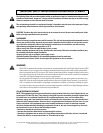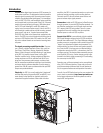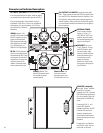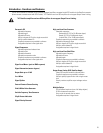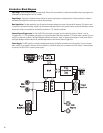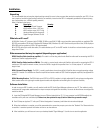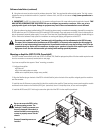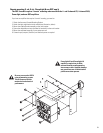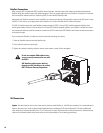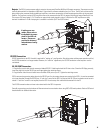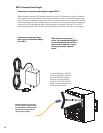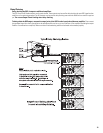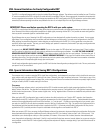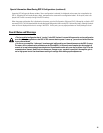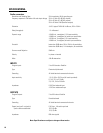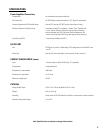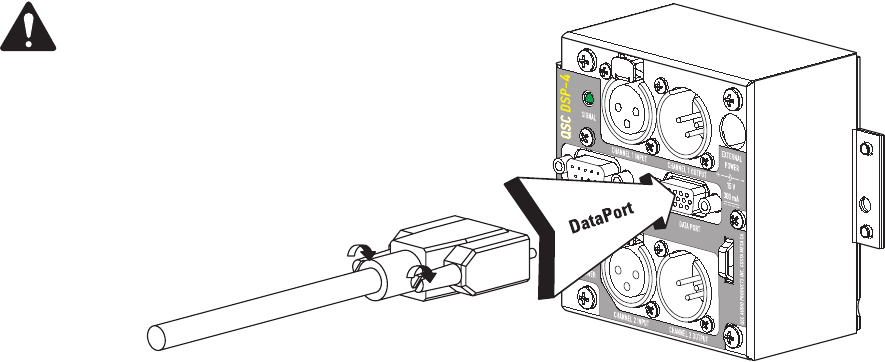
10
DataPort Connections
When using the DSP-4 module with QSC’s amplifier network monitors, the audio input to the module can be delivered through the
DataPort along with amplifier control and monitoring signals. This is the normal application of the DataPort. Connection from the mod-
ule to the amplifier network monitor is made using a DPC-X male-male QSC DataPort cable.
Alternatively, the DataPort connection can be used ONLY for control and monitoring, while the audio is input via the XLR inputs. If using
the DSP-4 in this manner, do not apply audio via the DataPort as it will be mixed with the XLR audio input signals.
The DSP-4’s DataPort output (rear panel DataPort) connects directly to QSC’s 2-channel, 2RU, DataPort equipped amplifiers when
mounting the module on the rear of the amplifier. For all other QSC DataPort equipped amplifiers, the module is mounted on an acces-
sory bracket and module-to-amplifier connection is made with a DPX-2 male-female QSC DataPort cable. These connections are shown
on the previous page.
If you are using the DataPort for audio input and/or control and monitoring, you need to:
1- Orient the DataPort connector with the DataPort jack.
2- Firmly insert the connector into the jack.
3- Tighten the connector’s retaining screws to ensure proper contact is made. Do not overtighten.
Do not use computer VGA cables as they
are not correctly constructed for use with
the DSP-4.
QSC DataPort cables may be obtained
through your QSC distributor or by calling
QSC’s Technical Services Department.
XLR Connections
Inputs- The audio input can be from one of two sources; the front-panel DataPort or the XLR input connectors. Do not use both sets of
inputs at the same time! Inputs are electronically balanced with an impedance of 8.3k ohms (balanced) or 3.7k ohms (unbalanced).
Input sensitivity is software-selectable from 1.5 to 18 volts (rms) full-scale. Shield terminals connect to the chassis. Use balanced con-
nections for the lowest possible noise levels and to minimize the possibility of hum-inducing ground loops.



